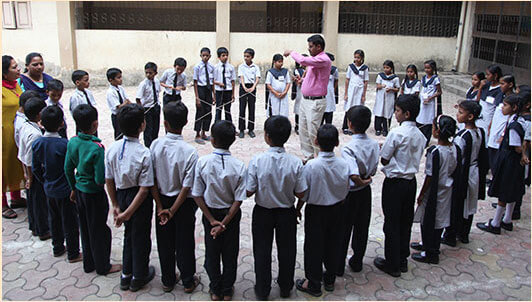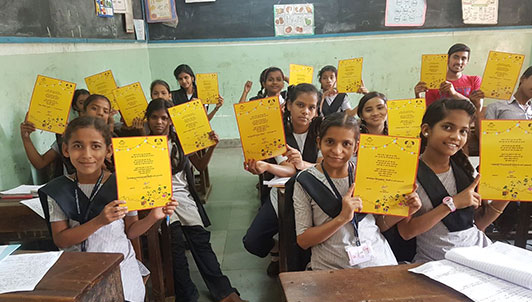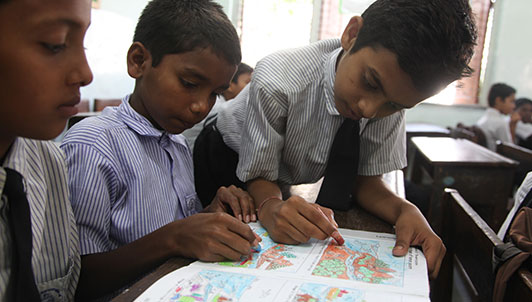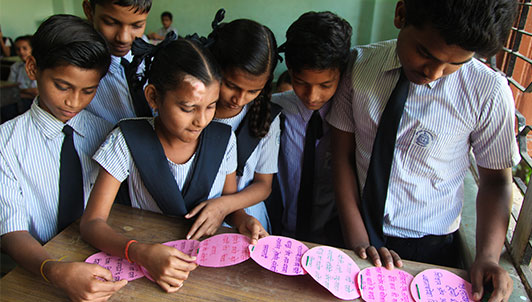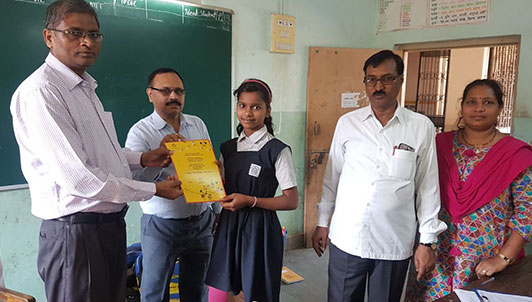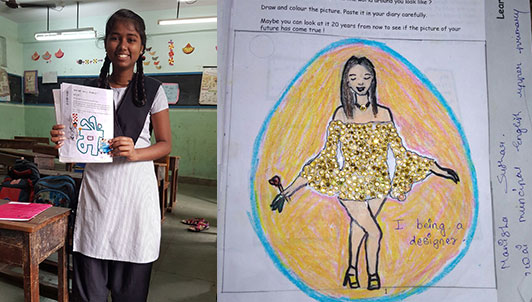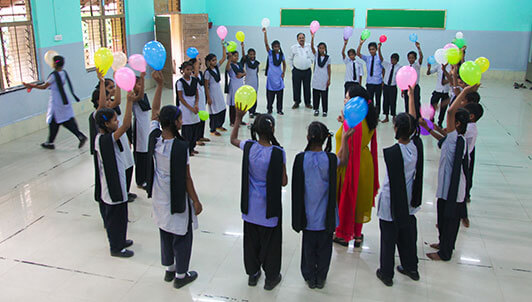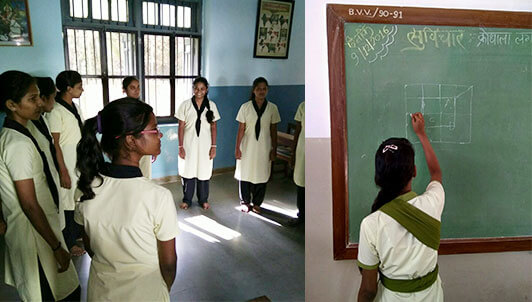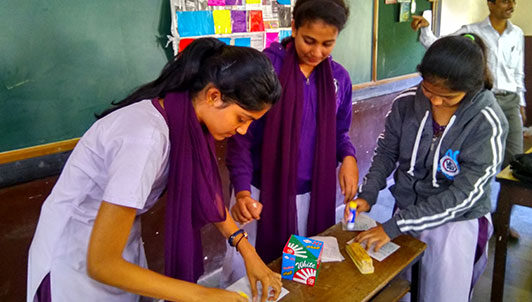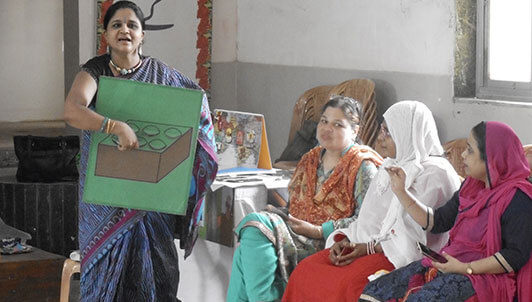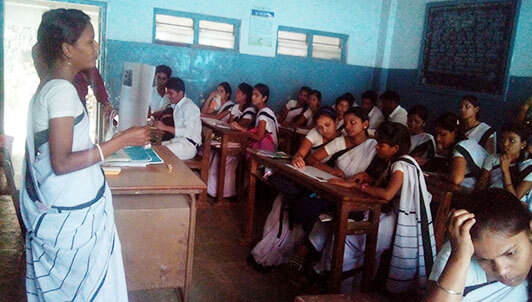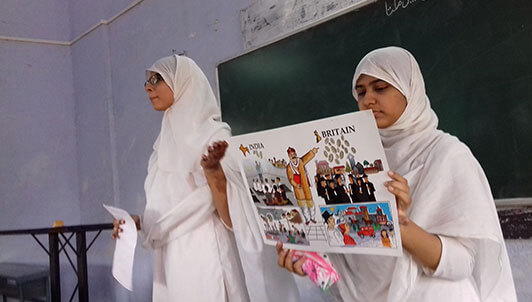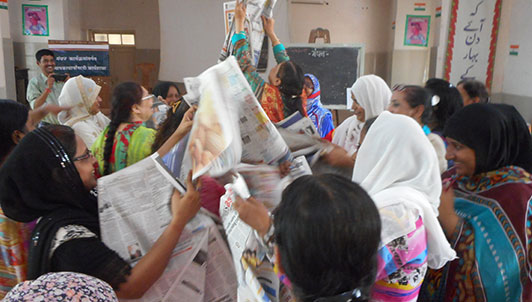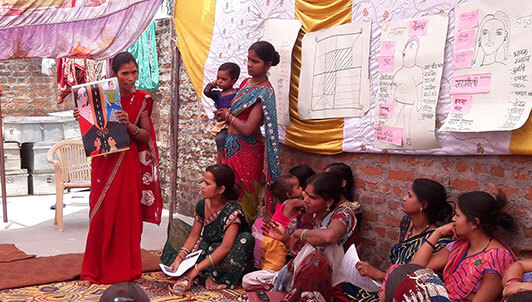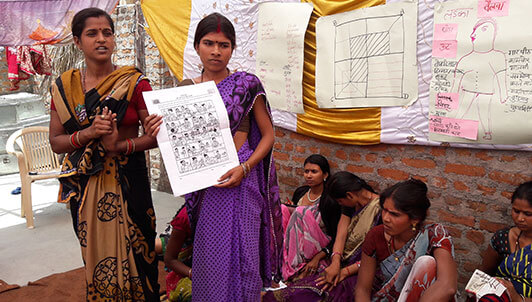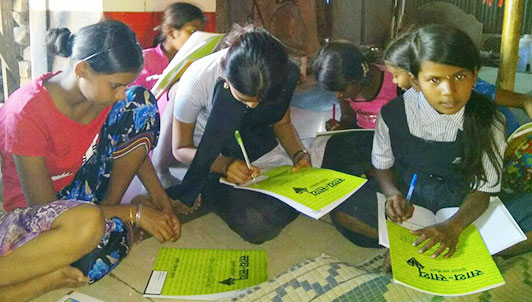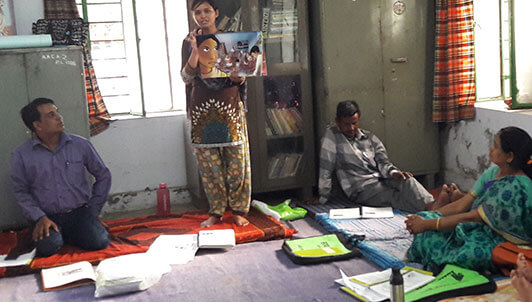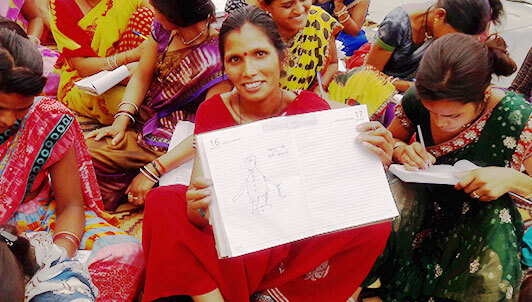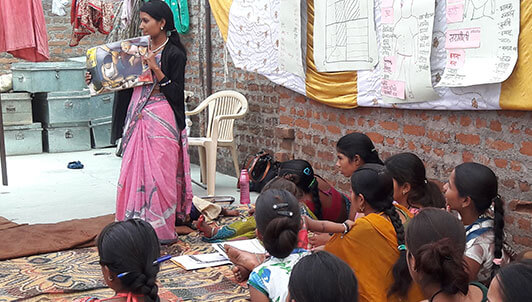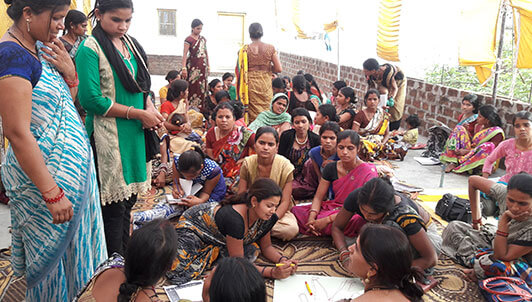Avehi Abacus focuses its outreach on schools catering to communities characterized by socio-economic marginalization.
Sangati Implementation
Sangati (togetherness/harmony): In the beginning of each academic year, training workshops are organized by the AVEHI ABACUS PROJECT to orient schoolteachers to Sangati. This is followed by distribution of kits and children’s material in schools. Depending on the school’s preference and medium, the Teacher’s Manuals are available in Marathi, Hindi and English, while the student’s material is available in Marathi, Hindi, Gujarati, Urdu, English, Tamil, Kannada and Telugu. Sangati sessions are conducted by the teachers for 1 clock hour per week. Field Representatives visit schools regularly to understand the response from students and teachers and provide inputs to make the sessions more effective; workbook filled by students are also overseen by them. The Sangati process is also documented and serves as a rich source of understanding teaching-learning processes in classrooms, changes in children and teachers.
AVEHI ABACUS PROJECT is the only organisation to implement an intensive curriculum programme enlisting the active involvement of in-service teachers in all middle schools (900+) over a stretch of nearly 18 years. In order to ensure smooth integration, better monitoring and sustained use of Sangati programme, the AVEHI ABACUS PROJECT has been involved in working closely with Supervisory Officials of Mumbai Municipal Corporation since they perform the key roles of administration and monitoring.
Sangati being used in all the Municipal Corporation of Greater Mumbai (MCGM) schools and has thus reached more than 1100 schools, 11,500 teachers and approximately 3,70,500 children. Currently Sangati is being implemented in 681 MCGM and 36 Ashram schools and reaching 41164 students in 1250 classes.
Sangati has also begun implementation in 17 Special Schools (for Special-needs children) in Mumbai run by the Municipal Corporation. This initiative was taken by the Administrative Officer in charge of these schools and the response from the teachers is overwhelming since they were able to connect substantial content from school books with Sangati curriculum. The various pedagogic devices have helped the students understand concepts and feel confident about learning and expressing themselves.
Since 2015 Sangati Programme is also being implemented in 36 residential schools for tribal children (Ashram Shalas) run by the Integrated Tribal Development Department, reaching out to more than 9600 students.
Manthan Implementation
Manthan (Churning): A foundation course designed to be transacted with for student-teachers enrolled for Diploma in Elementary Education, D.El.Ed. Manthan has thus reached more than 35 D.El.Ed. colleges in Palghar, Thane, Mumbai and Raigad district and approximately 3,600 student teachers. Manthan is currently being implemented in 14 colleges with 580 student teachers.
Saath Saath Implementation
Saath Saath- Living together in harmony: This curriculum package has been developed for use in schools as well as communities to contribute towards the resurgence in awareness about gender justice and equality. Saath Saath has reached more than 130 Community centers, 215 schools and approximately 19,535 adolescent girls, boys and 4,730 women in Mumbai as well as to grassroots women's organizations in Rajasthan and Uttar Pradesh.
Saath Saath has been started for VIIIth standard students as per the demand of teachers and students. The Saath Saath module has been used with 3,722 students from 124 classes in 99 MCGM schools.

